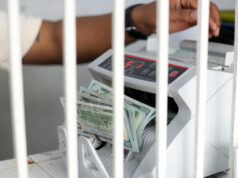Stimulus bill’s test kit budget seen at P20-B
LEGISLATORS will propose a P20 billion budget to procure test kits which will allow a semblance of normalcy to return to many public areas like businesses and airports and help restart the economy.
Representative and House committee on economic affairs chair Sharon S. Garin of the AAMBIS-OWWA party list said at webinar hosted by the Shareholders’ Association of the Philippines Wednesday that the test-kit budget component of the proposed Philippine Economic Stimulus Act (PESA) is being firmed up in order to help build consumer and business confidence after the lockdown.
“We are proposing a P20 billion allotment for test kits. Massive siya (It will be massive), you can use it in airports and LGUs (local government units) can have it. Until we have a vaccine, then we still have to build up consumer confidence and business confidence as well. So it is kind of a way a stimulus because it will encourage people to go out. If you go to a hotel, you can oblige (visitors) to have tests,” she said.
Presidential Adviser for Entrepreneurship Jose Maria A. Concepcion III said at the same forum that business models will need to change after the coronavirus disease 2019 (COVID-19) pandemic.
“So many business models will really change and consumer confidence as well because if they don’t have confidence in the health situation, they’re not going to go out to the stores, to the restaurants… they’re going to stick to the very basics until they realize we’re over this virus or we have better control of our health situation,” he said.
Rep. Jose Maria Clemente S. Salceda, the House ways and means committee chairman from Albay estimated easing community quarantine (CQ) standards will allow labor participation to increase to 50% will also still dampening keep consumer, labor and business confidence.
“Without testing, a modified CQ will allow labor participation to increase from 23% to 50% but keep consumer, labor and business confidence stuck in the cave while risking a second wave that would compel another lockdown which both the economy and the government can no longer afford,” he said.
Eastwest Banking Corp. Vice Chairman, President and Chief Executive Officer Antonio C. Moncupa, Jr. said that the economic stimulus bill proposed in the House of Representatives “will help a lot,” but added that it is important to ensure that the financial system remains “sound, willing and able to finance the economy.”
“We need to keep the aggregate demand flowing. And for that to happen, financing has to continue flowing. It is the lifeblood that ensures that businesses are able to operate. The fiscal intervention is very good, but the question I have in mind is that of magnitude. It is the question of how sufficient or not sufficient those fiscal interventions will be,” he said.
The latest draft of PESA proposes to inject about P1.3 trillion to P1.4 trillion in the first year of the intervention period of 2020–2022 to help workers and businesses deal with the effects of COVID-19.
In a Viber message to BusinessWorld Tuesday, Rep. Stella Luz A. Quimbo of Marikina, who co-chairs the economic stimulus cluster of the Defeat COVID-19 Committee, said PESA will protect workers by “aiding businesses in augmenting their working capital so payroll costs are maintained and workers are retained.”
“Many businesses have become illiquid as a result of paying salaries and overhead despite not having revenue. Even firms that were profitable pre-COVID but have become illiquid post-COVID are unable to continue paying salaries. Thus, they could end up retrenching employees,” she said.
She said that micro, small and medium enterprises will be the priority, but large firms are also eligible and can avail of assistance “if funds are sufficient.”
“If large firms fold, more workers are at risk of lay-offs. The effect on unemployment could be large too, especially if the firms have strong linkages with other productive sectors of the economy. We hope to protect workers of businesses critically impacted by COVID, regardless of size. These subsidies and loans come with the condition that workers are retained,” she said. — Genshen L. Espedido



